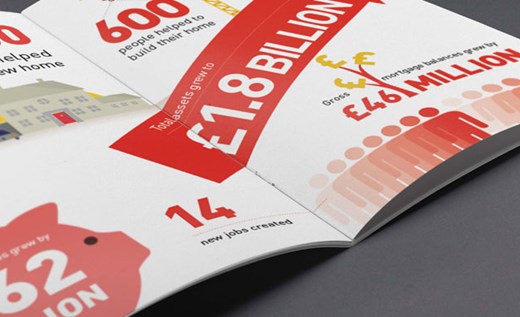
It's not just a Savings Account
Think of it this way: you’re not just topping up ‘a savings account’. You’re building a ‘treat myself to a holiday’ account. A ‘need to fix the boiler’ account. A new ‘designer handbag’ account. A ‘peace of mind’ account.
When you name a goal, saving stops being abstract and starts feeling useful - today.
That’s the thinking behind this year’s UK Savings Week platform: ‘Savings. They’re what you make of them.’
It’s a simple reframing that makes the habit more tangible.
Why this mental shift matters - Savings are strongly linked with feeling better about life.
University of Bristol analysis of nearly 27,000 UK adults shows a steady lift in wellbeing as saving increases: 47% of non‑savers were satisfied with life, compared with 63% among those saving £300–£399 a month and 68% for those saving £1,000+.
Optimism rises too (from 28% among non‑savers to 49% for the highest savers) and good‑quality sleep becomes more common (from 72% to 83%).
The pattern holds even after accounting for age, income and health - people who manage to save regularly report higher life satisfaction and mental wellbeing than similar people who don’t.
Savings also build financial resilience.
According to the data, 12% of those who hadn’t saved in any of six survey waves were behind with bills in 2021–22 compared to just 2% among people who managed to save in three waves (roughly every other year).
Even saving in only two of the six waves was associated with about a one‑third lower chance of debts exceeding 10% of household income.
Zoom out and the case for reframing is starker.
One in ten UK adults has no cash savings and another 21% has under £1,000 for an emergency - while an estimated £300 billion sits in accounts earning 0% interest.
That’s a lot of peace‑of‑mind money working far too hard for the bank, not for you.
A habit, not a hurdle
Here’s the good news: you don’t need to save a fortune to see a difference.
Bristol University research found that starting to save at any level is linked with small but measurable improvements in mental wellbeing over time.
‘Reward the behaviour, not the balance’ is the study’s message; regular deposits are the engine of both resilience and confidence.
That’s especially relevant for younger adults. In 2024, 34% of 18–34s said they couldn’t meet an urgent £300 expense and 42% held most of their savings in a current account. Set up the habit now and your future self will thank you.
Five smart ways to make saving feel easy
Rename the pot. Give every goal its own label in your banking app - Boiler, Holiday, Handbag, Peace‑of‑mind. It turns vague intent into clear purpose and keeps you motivated.
Automate on payday. Move money the moment you’re paid - £5, £25 or 1% of income - then nudge it up each quarter. Regular savers consistently report higher life satisfaction than non‑savers on the same incomes.
Try a ‘no‑spend month’ challenge. For 30 days, buy only essentials (rent, bills, basic groceries). Keep a running ‘not bought’ list and transfer the avoided spend into your named pot. You’ll prove to yourself the habit is possible - and watch the balance build.
Round‑ups and windfalls. Switch on account round‑ups; skim refunds or small windfalls straight to your pot. Even modest, regular deposits are associated with better sleep, optimism and life satisfaction.
Make your money work. Check your interest rate and move any idle cash from 0% accounts to a better‑paying home - particularly your ‘peace‑of‑mind’ fund. There’s still a vast amount in accounts paying nothing.
From safety net to springboard
Name the pot that protects you from life’s hassles - the boiler that gives up in January, the phone that dies, the train ticket you didn’t plan for.
Then name the pot that brings you joy - a long‑overdue break, a beautiful bag, a weekend with friends.
Both are valid. Both build the habit that research links to stronger resilience and calmer heads.
Bottom line: it isn’t just a savings account. It’s a ‘Saving Up For’ account.
It’s also a tool that helps you worry less now and do more later.
Pick a name. Set a small amount. Make it automatic. Then let the habit, your wellbeing and your balance grow.

Speak to our team today
We’d love to talk you through the mortgage process and help you find a suitable product. For more information or to apply for an account, you can call us, email us, pop into one of our 11 branches. We look forward to hearing from you.



